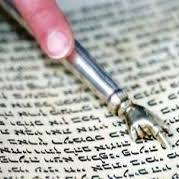
Parshot/Festivals

We can all learn a lesson from Levi
Rabbi Gidon Fox
Pretoria Hebrew Congregation
If the word “heart-warming”, could be used in such a context, which it cannot, I would use it. Such international unanimity has not been seen since probably the Second World War.
Yet at the same time, I could not help but feel a little despair by the very same global outpouring of grief and indignation. Where was such international indignation when four people were butchered to death in Har Nof in a house of worship? Where was such international unity when 300 girls were kidnapped and sold into slavery by Boko Haram, when the most significant global response was a twitter hashtag “bring back our girls”?
Where was the international solidarity protesting the massacre of some 2 000 people by the very same Boko Haram, in the name of the very same god, which occurred recently?
Standing up for justice and feeling the pain of others cannot have political exceptions and cannot be limited to shared values and interests.
In this week’s parsha the Torah makes mention of the first three children of Ya’akov and their respective children and descendants (in order to advise us of the genealogy of the henceforth key personalities Moshe and Aharon). There is, however, an interesting difference when it comes to mentioning the children of Levi.
Rather than simply identify them by name, as the Torah does for Reuven and Shimon, the Torah adds an extra phrase: “Ve’ayle shemot” and these are the names of the children of Levi (as opposed to simply stating “and the children of Levi…”).
When we look at the names given to the children of Levi, we see that the names themselves have an important significance and a vital message to teach us and the world how we should face injustice, the result of which is the addition of those words.
Despite Levi not be subjected to the slavery and purgatory of Egypt (they were allowed to sit and learn), Levi nevertheless gave the names Gershon, Kehat and Merari, to his three sons. Each of these names reflects the hardship which the other tribes of Israel, not Levi, experienced in Egypt.
Gershon refers to being a stranger in a foreign land. Kehat refers to the blunting of the teeth that was caused to the Jewish people as a result of their servitude and Merari refers to the tremendously bitter (Mar) experience and life that the rest of the Jews experienced.
Each of these names identifies Levi with the suffering that others experienced. Each of these names reminded Levi and his family that the suffering of others hurts them as well. The household of Levi was raised with a sense of social justice for all. They were reminded that they may not be disengaged from the plight of others simply because it does not affect them.
Perhaps it is for this reason that Moshe defends not only his people but all people, when he sees injustice. Not only did he save the Jew from the Egyptian who was striking him, but he also takes a stand against one Jew striking the other and finally takes a stand against the injustice being perpetrated by the Midianites against the daughters of Yitro (in last week’s parsha).
Moshe was raised on the idea that injustice must be combated regardless of whether it affects the individual or society personally.
I believe it is for this reason that the redeemer of our people, Moshe, specifically came from the tribe of Levi, a tribe that was able to share in the pain and suffering of others even though they themselves were not impacted by it.
Hopefully the world as well as each of us individually can learn the lesson of Levi and realise that the suffering of others is our problem under all circumstances, not only a select few and we can rise up in vociferous moral indignation wherever injustice raises its ugly head.




